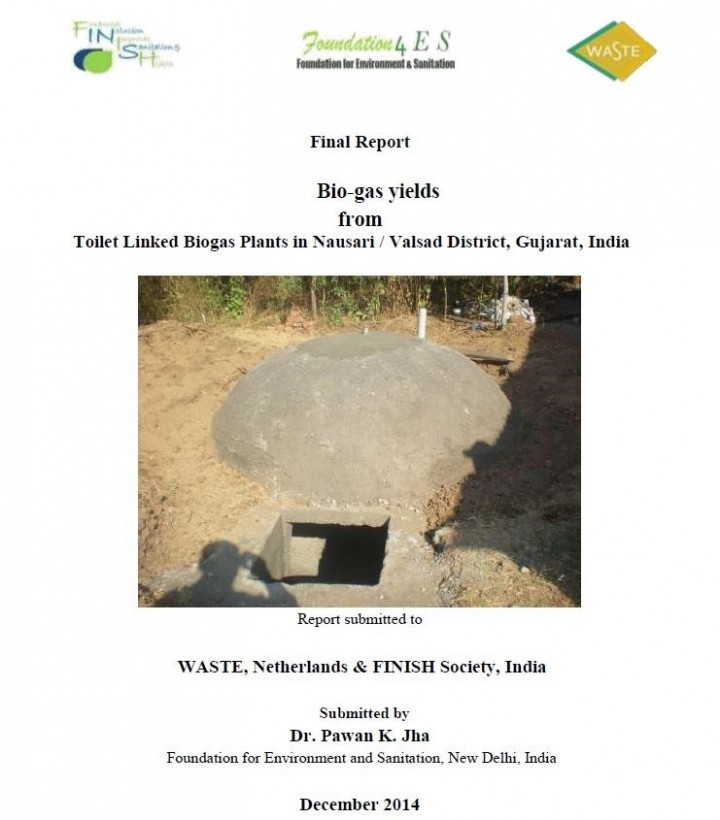Bio-gas yields from Toilet Linked Biogas Plants in Nausari / Valsad District, Gujarat, India
Jha, P. K. (2014)

Published in: 2014
Pages: 28
Publisher:
WASTE Netherlands, FINISH Society, India
Author:
Jha, P. K.
Uploaded by:
SuSanA Admin
Partner profile:
common upload
5361 Views
205 Downloads
Location of library entry
Biogas from cow dung with or without toilet linkage is in practice for over 3 decades in India. It
is supported by the Ministry of New & Renewable Energy, Government of India and State
Governments. However, the toilet linked biogas plant programme could not get required momentum, even
though it has several advantages.
To overcome the problem, the additional economic importance / advantages of toilet linked
biogas plants over non-toilet linked biogas plants need to be demonstrated.
Content - Summary
Toilet linked biogas plants have increased rate of biogas production over biogas plants without
the toilet linkage. The percentage of the increase varies with number of users of the toilet in a
family and the ratio of quantity of human wastes / quantity of cow dung. The higher the ratio, the
higher is the rate of biogas production. In the present observations in 4 different villages
covering total 16 families such increase has been recorded to vary between 25-32%.
Higher generation of biogas from toilet linked biogas plants is mainly due to complementary
actions of different groups of bacteria present in human wastes and cow dung. Methanogenic
bacteria are abundantly found in cow dung where as hydrolytic bacteria and acetogenic bacteria
are copious in human excreta. Complementary actions of all these bacteria lead to increase
production of biogas plant. Percentage of methane in the biogas from a toilet linked biogas plant
is higher than the methane percentage in biogas from a non-toilet linked biogas plant, i.e. it has a
higher calorific value. The results show that a family can have sufficient biogas with lower input
quantities of cow dung. Cooking requirements will be met even with dung from 2 cows.
Plant nutrient values from slurries from toilet linked and without toilet linked biogas plants are
being examined. Earlier, the samples were submitted to the Agriculture University for analysis.
Their results were not acceptable as it mentioned in term of wet weight basis. It will be available
by the end of this month. Effects of slurry on different vegetables and crops are being monitored.
Such results may have good impact on its economic aspect and help social acceptability of the
programme.
Bibliographic information
Jha, P. K. (2014). Bio-gas yields from Toilet Linked Biogas Plants in Nausari / Valsad District, Gujarat, India. WASTE Netherlands, FINISH Society, India
Filter tags
Biogas systems East Asia & Pacific Energy: biogas English Europe & Central Asia Faeces or faecal sludge Urine














